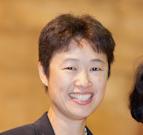
The Cause of Whispering Dysphonia
Chief Investigator: Professor Carolyn Sue
Co-Investigators: Associate Professor Robert Wilcox and Professor Christine Klein
Dystonia is a neurological movement disorder characterised by abnormal posture due to an imbalance of muscle contraction. It can be associated with abnormal twisting or repetitive movements in the absence of stiffness or mechanical abnormality. Abnormal movements may affect the arms, legs, trunk, face and neck. Dystonia can be caused by a number of different genetic or environmental factors.
Mutations in several genes have been identified to cause different types of dystonia. However, the disease cause in the majority of patients is still unknown. In this project, we collected DNA samples from eight affected and nine unaffected members of a large family with spasmodic (whispering) dysphonia. The phenotype of this family has been classified as dystonia 4 (DYT4). We used state-of-the-art sequencing techniques (so-called next generation sequencing), to identify the novel genetic cause of DYT4 in affected family members. We will test the effect of these genetic mutations in a number of tissues sampled (under local anaesthetic) from affected and unaffected patients from the DYT4 family.
Using this strategy, we hope that our project will identify novel targets to develop new treatments options for patients suffering this condition.


 The Brain Foundation is the largest, independent funder of brain and spinal injury research in Australia. We believe research is the pathway to recovery.
The Brain Foundation is the largest, independent funder of brain and spinal injury research in Australia. We believe research is the pathway to recovery.